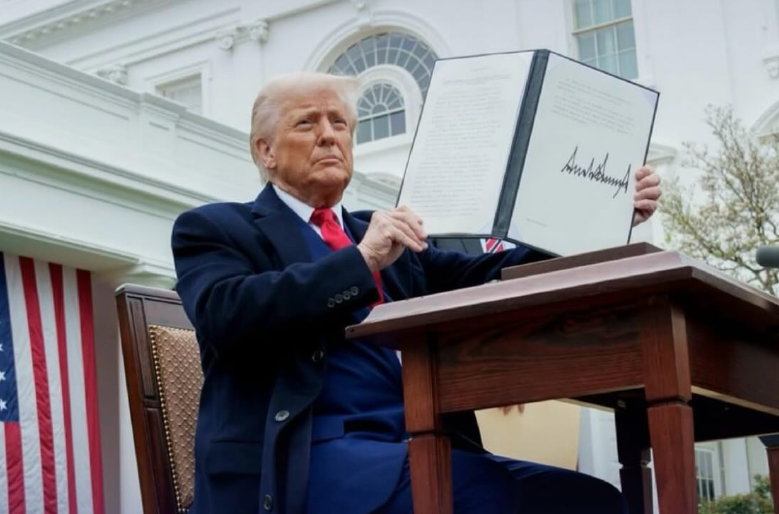The relation between the United States and India has always enjoyed immense importance in the global arena. At present, a new chapter has opened the US Seeks Trade Deal with India and is simultaneously urging New Delhi to stop Russian oil. The matter has now generated debates on economic, diplomatic, and energy issues. For India, thus lies both an opportunity and a threat.
The Background: Why Trade Talks Matter
India has become one of the fastest-growing economies in the world today. Recognizing India as a partner and market due to its potential, the US is willing to give impetus to a bilateral trade agreement that will enhance investments, create employment opportunities, and encourage the transfer of technology.
At the same time, the US views its enhanced trade relations with India as a strategy to further its interests in Asia. With the changing nature of global supply chains, India is now one of the prime choices for companies seeking to diversify away from China.
The Russian Oil Angle
While the talks themselves give an impression of promise, however the US has urged India to stop buying Russian oil. Since the onset of the conflict in Russia and Ukraine, Western countries have imposed sanctions against Moscow. However, despite discounted prices offered by Russia, India continues purchasing Russian crude, which supports its energy security.
In the eyes of India, cheap oil essentially keeps inflation at bay and cuts prices for the industries and consumers. But for the US, these purchases really devalue the power of sanctions imposed on Russia.
India’s Energy Needs
India imports more than 80% of its crude oil needs. Such an overwhelming reliance itself spells energy as a sensitive issue. Offerings of Russian oil at a discounted rate give India relief in its budget and support in the social sector.
But turning away from Russian oil is not that easy; alternatives from the Middle East or the US frequently come at a price, thereby steepening the Indian economy’s costs.
Balancing Diplomacy and Economy
The situation further highlights the rocking boat for India. On the one hand, Washington is valued as a partner by New Delhi. On the other hand, it will unavoidably have to face its gigantic relationship with Moscow over energy issues.
India has remained neutral on the Russia-Ukraine conflict, calling for dialogue and peace. This neutrality allows India to engage with Russia and the US.
Benefits of a US-India Trade Deal
Notwithstanding the oil ruckus, the trade deal between India and the US still comes with great opportunities:
- Technology Transfer refers to specialized know-how that the US can share across AI, cybersecurity, and green energy.
- Investment Gain would entail US companies investing more in India in manufacturing and infrastructure.
- Job Creation will be a direct result of new investments and trade relations working toward the IT sectors, agriculture, and logistics.
- Market Access will provide Indian businesses better access to markets in the US, thus ensuring more exports.
Challenges in the Trade Talks
Conducting trade-talk negotiations is complicated by several issues, with some main ones including:
Tariffs: High tariffs on certain goods apply to both countries.
Agriculture: Indian laws protect its farmers, but the US wants more access for its products.
Intellectual Property: There are still differences in patent law and the pharma industries themselves.
Energy Policies: The US oil debate just adds an extra layer to a complex problem.

The Global Impact
What happens in these talks won’t just affect these two nations. A robust trade deal will impact global supply chains, primarily in technologies and manufacturing, and rearrange the energy markets as India begins to realign its oil imports.
For those watching very attentively, such as China, the bolstering of US-India ties could surely shift power in Asia.
India’s Long-Term Strategy
In the near future, India is aiming to be a $5 trillion economy. To ensure that, it must work towards expanding global partnerships. Trading with the US fits its strategic roadmap perfectly. On the other hand, India needs to secure its freedom in foreign affairs.
By looking at an energy diversification path and negotiating smartly, India can achieve cheap oil and a good trade deal for itself.
Public Opinion in India
There is, nevertheless, a disagreement inside India. Some experts argue that India’s reliance on Russian oil is short-sighted and might hamper long-term ties with the US. Others hold that cheap energy is non-negotiable for a country where millions are still grappling with poverty.
The Indian masses generally rally around any policy that protects their local interests first. It hence becomes clear that any decision that the government makes will put diplomacy on one side, with the interests of the country on the other.
Looking Ahead
In the next few months, the US-India trade talks and the Russian oil issue shall dominate the headlines. There is much in cooperation for both sides; however, each will have to compromise.
Reducing India’s dependence on Russian oil might result in better trade relations with Washington. On the contrary, if India continues snowballing from the sanctuaries of Moscow, it will have to really dig deep in negotiations to keep the US still interested.
Conclusion
The story of “US Seeks Trade Deal, Urges India to Stop Russian Oil” and the rest depict the intricate journey of modern international politics. India has to tread a very thin line between energy security and strategic partnerships.
If India can successfully trade with the US, it will certainly change India’s economy and open up opportunities to Indian businesses and citizens. Alongside, cheap energy stands as a core element of stability.
Looking ahead, as this situation is unfolding in real-time, India’s choices will frame not only its future but also the balance of power throughout the world.
